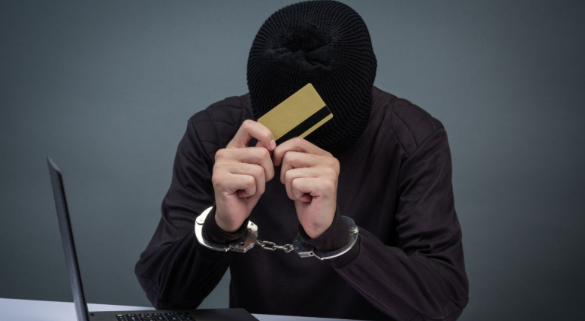Getting your house burgled by a random intruder is upsetting enough. However, it doesn’t compare to the betrayal of losin g your valuables to someone you know.
Getting robbed by a close family member or friend can erode the longstanding trust between the two of you. Depending on what’s stolen, you may never be able to view the person in the same light again.
But there must be reasonable suspicion before confronting the suspect with your accusations. And if they deny (as most guilty people will), you’ll need a reliable way to discern if they’re being honest or deceptive.
While you can deploy conventional investigation techniques, these practices aren’t always conclusive. That’s where polygraphs come in.
Enlisting a professional polygraph examiner can be an excellent decision while investigating thefts within your social circles. Here’s how personal theft and loss lie detector tests work.
What Do Polygraphs Measure?
Lie detector machines typically monitor changes in pulse rate, blood pressure, skin conductivity, and respiration. These metrics are all regulated by the Autonomic Nervous System (ANS), a division of the body’s Peripheral Nervous System (PNS).
Studies have shown that lying arouses the autonomic nervous system.
Through polygraphs, examiners can detect suspicious increases in the four ANS-regulated functions. The data is compared against prerecorded physiological baselines to infer if an examinee is possibly lying.
Circumstances Where Personal Theft Polygraph Testing Would Be Ideal
1. Theft Involving Family Members
Domestic thefts aren’t uncommon.
Usually, these unfortunate incidents bear the signature of the black sheep in the family. Other times, the perpetrator is a seemingly innocent child or sibling.
Spouses aren’t spared either.
Using a polygraph can separate truth from allegations, enabling you to possibly recover your valuables.
2. Theft Involving Friends
Ever housed a friend one time, only for them to repay you by stealing your valuables?
Whether it’s jewelry, wall art, or cash, losing precious items to someone you trust can be heartbreaking.
Requesting the person to submit to a lie detector test may help uncover if your cherished friend isn’t as honest as they’ve always portrayed themselves to be.
3. Theft Involving Business Partners
Business-related thefts can assume multiple forms. A partner may break into the company’s safe and make away with a month’s worth of gross revenue. If they’re greedy enough, they could auction your trade secrets to the highest bidder.
Not the kind of corporate fraud you want to entertain. Personal theft polygraph testing can help investigate losses involving business partners, potentially saving your venture from going under.

4. Theft Involving Drugs Within Households
One of the most common — yet often overlooked — forms of theft within households involves prescription or recreational drugs. When medications start disappearing, suspicion and tension can quickly spread among family members.
A polygraph test can help identify whether someone in the household is secretly taking or selling the drugs, bringing much-needed clarity to a sensitive and often emotionally charged situation.
The Role of Polygraphs in Personal Theft Investigations
1. Narrowing the Suspects’ Pool
You could deploy various investigation methods to sniff out actual perpetrators from a broad suspect pool. But as mentioned, findings from these techniques aren’t always conclusive.
Introducing polygraph tests enables you to refine the suspects’ lists even further.
By polygraphing the prime suspects, you can discover those who lied in their earlier statements. The spotlight would then shift to the suspects who fail the lie detector tests, freeing the rest from the pool.
2. Validating Witness Statements
Some personal thefts may leave behind witnesses. However, not every witness is credible.
Some witnesses are outright liars out to fix people they dislike. Others could be telling the truth but might not have the full recollection of the events surrounding the incident.
Polygraphs aren’t only effective at cross-examining a suspect’s statements. As a victim, you could also use them to validate or impeach your witnesses’ testimonies.
If your witnesses pass lie detector tests, you could use the findings to press the lead suspects further. Similarly, the defendant may be let off the hook if their witnesses pass a polygraph exam.
3. Addressing Inconsistent Accounts
There are cases where suspects or witnesses keep changing their stories. As mentioned, this could be out of pure malice or a hazy memory of the incident under investigation.
Administering a polygraph exam can make a significant difference.
Using findings from lie detector tests, you can assess the veracity of the examinee’s claims and determine if they’re a credible witness or not.

Choosing a Polygraph Examiner
When searching for a polygraph examiner to help with personal theft investigations, due diligence is key.
Choose an individual who graduated from a school accredited by reputable accreditation bodies, preferably the American Polygraph Association (APA).
Besides, prioritize an examiner with practical industry experience. Ask for a list of referrals and contact these individuals for reliable insights into the individual’s expertise.
Conducting the Polygraph
A polygraph examiner will deploy various techniques to help you narrow down to the actual perpetrator.
The most commonly used interview methodology is the Comparison Question Test (CQT).
In CQT, an examiner asks a series of relevant and control questions. Relevant questions are crime-specific, while control/comparison questions are pertinent but don’t relate directly to the crime. The latter are meant to evoke stronger emotional reactions.
A stronger response to comparison than to relevant questions indicates truthfulness, while the converse suggests deception.
Responses that indicate intimate knowledge of the incident suggest an individual either witnessed the crime or is the actual perpetrator.

Shrinking the Suspects Pool With Lie Detector Tests
Lie detector tests can accelerate personal theft investigations by reducing the number of suspects. Findings from these evaluations let you narrow down to the actual perpetrators and free uninvolved suspects.
However, polygraph reports cannot constitute probative evidence. They should only help to corroborate or impeach statements.
Besides, polygraph testing is most effective if used alongside other validated investigation techniques like the CIT.
Remember that lie detector tests are generally inadmissible in most criminal proceedings across the USA. To conduct legally defensible polygraphs, ensure the examinee gives their informed and wilful consent.






